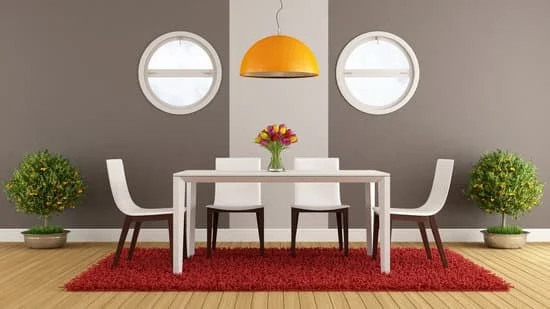Diwali, also known as the Festival of Lights, is a significant and much-anticipated festival in India and among the Hindu community worldwide. It is a time for celebration, family gatherings, and of course, beautiful decorations that adorn homes and public spaces.
In this article, we will explore how to decorate your home on Diwali – a vibrant and joyous occasion that calls for colorful, lively, and warm decor. From traditional diyas to modern lighting options, this guide will offer tips, ideas, and inspiration on creating a festive atmosphere that captures the spirit of Diwali.
The festival of Diwali holds deep cultural and religious significance for many people. Aside from its association with the triumph of good over evil, Diwali is also about welcoming prosperity and abundance into our lives. Decorating the home during Diwali is not just about creating visual appeal; it is about infusing our living spaces with positivity and auspiciousness. Understanding the deeper meaning behind the tradition of decorating can help us approach the process with mindfulness and intention.
In this section of the article, we will delve into why decorating the home is an integral part of celebrating Diwali. From understanding the symbolic importance of certain decorations to appreciating how these elements contribute to creating a sense of warmth and hospitality, we will explore why Diwali decor goes beyond mere aesthetics.
Whether you are new to celebrating Diwali or simply seeking fresh ideas for decorating your home this year, this comprehensive guide will provide valuable insights on making your space feel festive and inviting during this special time.
Diwali Decor Essentials
Diwali, also known as the Festival of Lights, is one of the most significant festivals in Hindu culture. Decorating the home during Diwali is an essential part of the celebration, as it signifies the welcoming of Goddess Lakshmi and the triumph of light over darkness. To create a festive and inviting atmosphere, there are several decor essentials that are traditional to Diwali. These decorations add color, warmth, and a sense of spirituality to your home during this auspicious time.
Diwali Decor Essentials
– Diyas: Diyas, or oil lamps, are an iconic symbol of Diwali. They are traditionally made from clay and filled with ghee or oil, with a cotton wick used for lighting. Lighting diyas not only adds a beautiful glow to your home but also holds cultural and spiritual significance.
– Rangoli: Rangoli is a colorful art form created on the floor using colored rice, flour, sand, or flower petals. It is believed to bring good luck and is often used to welcome guests into the home during Diwali.
– Fairy Lights: Fairy lights or string lights are widely used to adorn homes during Diwali. They create a magical ambiance and add a festive glow to indoor and outdoor spaces.
– Traditional Torans: Torans are decorative door hangings made from mango leaves, marigold flowers, or fabric. They are hung at the entrance of homes during Diwali as a symbol of prosperity and good luck.
These essentials set the stage for a beautiful and vibrant Diwali celebration in your home. Whether you prefer traditional decor or want to incorporate modern elements, these key decorations help create an enchanting atmosphere for this special occasion.
Color Palette for Diwali
Diwali, also known as the festival of lights, is a significant and festive occasion celebrated by millions of people around the world. One of the key aspects of Diwali is the decoration of homes and public spaces to create a vibrant and joyful atmosphere. As such, understanding the significance of colors in Diwali decor is essential for setting the right mood during this auspicious time.
Significance of Colors
In Indian culture, colors hold great symbolic importance, and this is especially true during Diwali. Each color is associated with different meanings and emotions, making it crucial to choose the right color palette when decorating for the festival. For example, red symbolizes passion and energy, while yellow represents knowledge and learning. By incorporating these meaningful colors into your decorations, you can reflect the spiritual and cultural essence of Diwali.
Color Schemes for Diwali
When it comes to selecting color schemes for Diwali decor, there are several options that can help create a vibrant and festive atmosphere. Traditional color combinations such as red and gold or green and yellow are popular choices for their association with prosperity and good fortune. Additionally, incorporating vibrant hues like magenta, orange, and royal blue can add an extra layer of excitement to your decor, infusing your home with the joyful spirit of Diwali.
Incorporating Colors in Decor
To bring these color schemes to life, consider using elements like colorful floral arrangements, intricately designed rangoli patterns using vibrant powdered pigments or flower petals, and draping fabrics in rich hues around your home. In addition to these decorative elements, integrating colored LED lights or candles in your chosen color palette can further enhance the festive ambiance.
By carefully selecting colors and incorporating them thoughtfully into your decor, you can create a visually stunning environment that captures the essence of Diwali celebration.
Traditional vs Modern Decor
When it comes to decorating for Diwali, individuals have the option to choose between traditional and modern decor styles, each offering a unique take on the festive celebration. Traditional Diwali decorations often include elements such as diyas (oil lamps), rangoli (colorful floor designs), and torans (door hangings), all of which hold deep cultural significance.
On the other hand, modern and contemporary decor for Diwali may involve using fairy lights, metallic accents, or sleek and stylish centerpieces. Both styles can create a beautiful ambiance, but they cater to different preferences and tastes.
Traditional Diwali Decor
For those who appreciate timeless beauty and value the rich cultural heritage associated with Diwali, traditional decor is the way to go. Decorating with diyas not only symbolizes the victory of light over darkness but also adds a warm and inviting touch to the home during the festivities.
Rangoli designs made from colorful rice powder or flower petals are another essential part of traditional decorations, serving as a form of artistic expression and welcoming guests into the home with vibrant patterns. Additionally, torans made from mango leaves or marigold flowers are hung at the entrance for their auspicious symbolism.
Modern and Contemporary Decor
In contrast, individuals who prefer a more contemporary approach to Diwali decor may opt for modern elements such as LED fairy lights to illuminate their homes with a soft glow. Metallic accents like gold or silver candle holders, vases, or wall art can add a touch of sophistication to the overall aesthetic. Modern centerpieces featuring sleek designs or minimalistic floral arrangements are also popular choices for those looking to embrace current trends in interior styling while celebrating Diwali.
Overall, both traditional and modern decor have their own appeal when it comes to decorating for Diwali. While traditional decor pays homage to customs and rituals dating back centuries, modern decor offers an opportunity for creativity and personal expression in celebrating this joyous occasion. Whether one chooses traditional or modern decor ultimately depends on individual preferences while keeping in mind the rich cultural significance of Diwali celebrations.
DIY Decor Ideas
Decorating your home for Diwali can be a fun and fulfilling experience, especially when you add a personal touch to your decorations. If you’re looking to get creative while keeping expenses in check, DIY decor projects are the perfect solution.
Not only do they allow you to customize your home’s decor according to your taste, but they also provide an opportunity for quality time with friends and family. Here are some easy and budget-friendly DIY decor ideas that you can try for a beautifully decorated home this Diwali.
One of the most iconic elements of Diwali decor is the “diya,” or oil lamp. Creating your own DIY diyas can be both meaningful and enjoyable. You can use materials like clay, glass, or even recycled cans to make unique diyas in various shapes and sizes. Adding decorative elements such as glitter, beads, or paint can further enhance the aesthetic appeal of these diyas.
Another popular Diwali decor item is the “rangoli,” a colorful design made on the floor using materials like colored rice, sand, or flower petals. Making a rangoli at home is a wonderful DIY project that the entire family can participate in. Whether you prefer traditional patterns or more contemporary designs, there are countless online tutorials and templates available to help you create a stunning rangoli for your home.
In addition to diyas and rangolis, creating handmade torans or door hangings can also be a delightful way to decorate your home for Diwali. Torans made from fabric, paper, fresh flowers, or even dried leaves can add charm and elegance to any doorway. By incorporating DIY torans into your Diwali decor, you can infuse your personality into every corner of your home while keeping costs low.
Eco-Friendly Decor
Diwali, also known as the festival of lights, is a time for joyous celebrations and beautiful decorations. In recent years, there has been a growing awareness of the environmental impact of traditional Diwali celebrations, leading many people to seek out eco-friendly decor options. By incorporating sustainable practices into the festivities, individuals can celebrate Diwali responsibly while still enjoying the vibrant and festive atmosphere.
One eco-friendly decor option for Diwali is to use recycled or upcycled materials for decorations. Many DIY projects can be done using materials that would otherwise end up in landfills, such as glass jars, old sarees, or cardboard.
Creating decorative items from these materials not only reduces waste but also adds a unique and personalized touch to the decor. Additionally, using natural elements like flowers, leaves, and dried fruits in place of artificial decorations is an excellent way to minimize environmental impact.
Another sustainable decor option for Diwali is to opt for energy-efficient lighting solutions. LED lights consume significantly less energy than traditional incandescent bulbs, making them an eco-friendly choice for decorating both indoor and outdoor spaces during Diwali. Additionally, solar-powered string lights are a great alternative for outdoor decor, harnessing renewable energy from the sun to create a magical and environmentally friendly ambiance.
Furthermore, embracing the concept of minimalism can also contribute to eco-friendly Diwali decor. Instead of excessive ornamentation, focus on simplicity and elegance in your decorations. By selecting a few impactful decorative pieces made from sustainable materials rather than filling every inch of space with adornments, you can create a stylish and environmentally conscious aesthetic for your home during Diwali celebrations.
| Eco-Friendly Decor Tip | Description |
|---|---|
| Recycled/Upcycled Materials | Use items like glass jars or old fabric to create unique decorations. |
| Energy-Efficient Lighting | Choose LED lights or solar-powered string lights for eco-friendly illumination. |
| Minimalism | Focus on simple yet impactful decor pieces made from sustainable materials. |
Creating Ambiance
When it comes to celebrating Diwali, creating the right ambiance is essential for setting the mood for the festivities. Incorporating the right lighting, scents, and music can contribute to a warm and inviting atmosphere that enhances the overall experience of the celebration. Here are some suggestions on how to use these elements to create the perfect ambiance for Diwali celebrations:
1. Lighting: Diwali is known as the festival of lights, so it’s no surprise that lighting plays a crucial role in creating the right ambiance. Traditional diyas or oil lamps are a must-have for decorating during Diwali. Additionally, incorporating string lights, lanterns, and candles can add a soft glow to your home. Consider using LED candles for safety and longevity.
2. Scents: Aromas can have a significant impact on the ambiance of any space. During Diwali, consider infusing your home with warm and inviting scents such as sandalwood, jasmine, or rose. You can achieve this through incense sticks, scented candles, or essential oil diffusers.
3. Music: The right music can enhance the festive spirit of Diwali celebrations. Consider creating a playlist that includes traditional Indian music as well as upbeat and lively tunes that encourage dancing and celebration.
By paying attention to these elements and making intentional choices about lighting, scents, and music, you can create a warm and inviting ambiance that is perfect for celebrating Diwali with friends and family.
Personal Touch
Incorporating personal and cultural touches into your Diwali decorations can truly make the celebration feel special and meaningful. Displaying family heirlooms, such as traditional utensils or artwork, can connect you to your roots and add a sense of nostalgia to your home decor. Additionally, incorporating regional traditions, whether it’s through specific color schemes or crafts unique to your area, can make your Diwali decorations feel authentic and reflective of your heritage.
One way to add a personal touch to your Diwali decor is by creating custom artwork or crafts that hold significance to you and your family. This could include creating DIY rangoli designs that have personal meaning, or crafting homemade torans using materials that are important to you. These personalized elements will not only enhance the visual appeal of your decorations but also infuse them with sentimental value.
Furthermore, don’t be afraid to mix traditional Diwali decor with elements that reflect your personal style and taste. Whether it’s adding contemporary touches to traditional decorations or vice versa, finding a balance between timeless customs and modern aesthetics can result in a truly unique and personalized atmosphere for your Diwali celebrations. By embracing personal and cultural aspects in your decor, you can create a warm and inviting environment that resonates deeply with the spirit of Diwali.
Frequently Asked Questions
How We Decorate Our House in Diwali?
Diwali is a festival of lights and in order to decorate our house for this special occasion, we typically use colorful rangoli designs at the entrance, hang paper lanterns or fairy lights, and put up traditional diyas or oil lamps. Many people also decorate their homes with colorful flowers and garlands, as well as colorful tapestries and wall hangings.
The idea is to create a warm and welcoming atmosphere that reflects the spirit of the festival.
How to Prepare Your Home for Diwali?
Preparing your home for Diwali involves several steps. Cleaning the entire house is an important part of the preparation, as it symbolizes the removal of negativity and welcoming positive energy.
After cleaning, the house is then decorated with colorful rangoli patterns at the entrance and adorned with diyas or candles around the house to create a warm and inviting ambiance. Additionally, getting fresh flowers and garlands can add a touch of elegance to your home during this festive time.
How to Decorate for Diwali Celebration?
Decorating for Diwali celebration often involves using brightly colored decorations such as paper lanterns, fairy lights, or traditional oil lamps called diyas. Rangoli designs made of colored powders are also a popular way to decorate floors or entrances for this special occasion. In addition to these traditions, adding fresh flowers or garlands can provide a beautiful natural touch to your decor.
Some may also opt for colorful tapestries or wall hangings depicting traditional motifs related to Diwali celebrations. The main idea is to create an atmosphere that reflects joy, warmth, and light during this festival of lights.

I’m thrilled to be your companion on this exciting journey through the world of home decor and design. With a passion for turning houses into homes and a keen eye for the finer details, I’m here to help you transform your living spaces into beautiful, functional, and meaningful havens.





